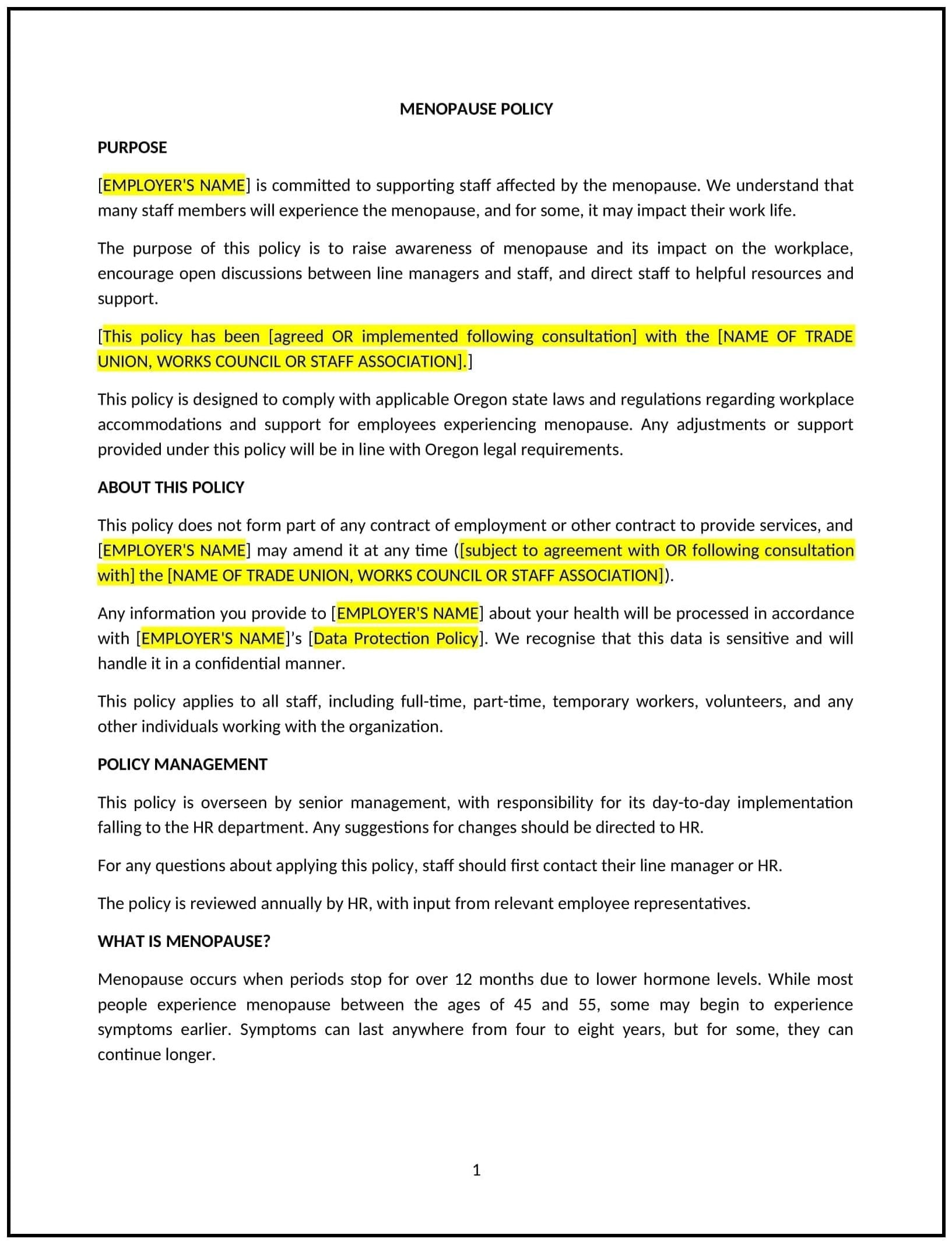Got contracts to review? While you're here for policies, let Cobrief make contract review effortless—start your free review now.

Customize this template for free
Menopause policy (Oregon)
This menopause policy is designed to help Oregon businesses support employees experiencing menopause by providing accommodations, resources, and a supportive work environment.
By adopting this policy, businesses can promote inclusivity, enhance employee well-being, and align with best practices for workplace health and wellness.
How to use this menopause policy (Oregon)
- Define accommodations: Outline potential accommodations for employees experiencing menopause, such as flexible work hours or temperature control.
- Provide resources: Offer access to information, support groups, or counseling services related to menopause.
- Train managers: Educate supervisors on recognizing menopause symptoms and providing appropriate support.
- Foster inclusivity: Create a culture where employees feel comfortable discussing menopause-related needs.
- Review and update: Assess the policy annually to ensure it aligns with evolving workplace health standards.
Benefits of using this menopause policy (Oregon)
This policy offers several advantages for Oregon businesses:
- Promotes inclusivity: Demonstrates a commitment to supporting employees through all life stages.
- Enhances well-being: Provides accommodations and resources to help employees manage menopause symptoms.
- Reduces absenteeism: Supports employees in staying productive and engaged at work.
- Builds trust: Shows employees that the business values their health and well-being.
- Supports retention: Encourages loyalty by addressing the needs of a diverse workforce.
Tips for using this menopause policy (Oregon)
- Communicate clearly: Share the policy with employees and include it in the employee handbook.
- Provide training: Educate managers on recognizing menopause symptoms and providing appropriate support.
- Monitor compliance: Regularly review accommodations and resources to ensure they meet employee needs.
- Address issues promptly: Take corrective action if employees feel unsupported or accommodations are inadequate.
- Update regularly: Revise the policy as needed to reflect changes in workplace health standards or employee feedback.